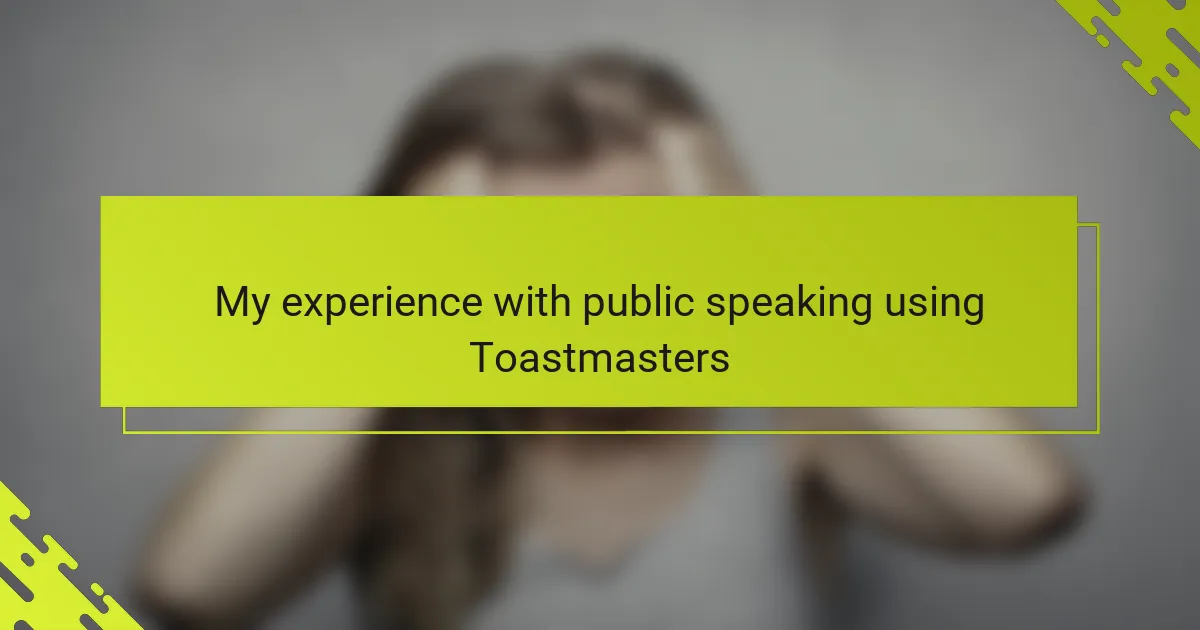Key takeaways
- Public speaking is about making connections and effective storytelling, requiring clarity and confidence.
- Toastmasters provides a supportive community that emphasizes practical experience and constructive feedback, helping individuals build public speaking skills gradually.
- Queer women face unique challenges in public speaking, including representation and internalized fears, but these can be addressed through supportive communities.
- Embracing vulnerability and owning one’s identity enhances authenticity in public speaking, turning nerves into a source of connection.
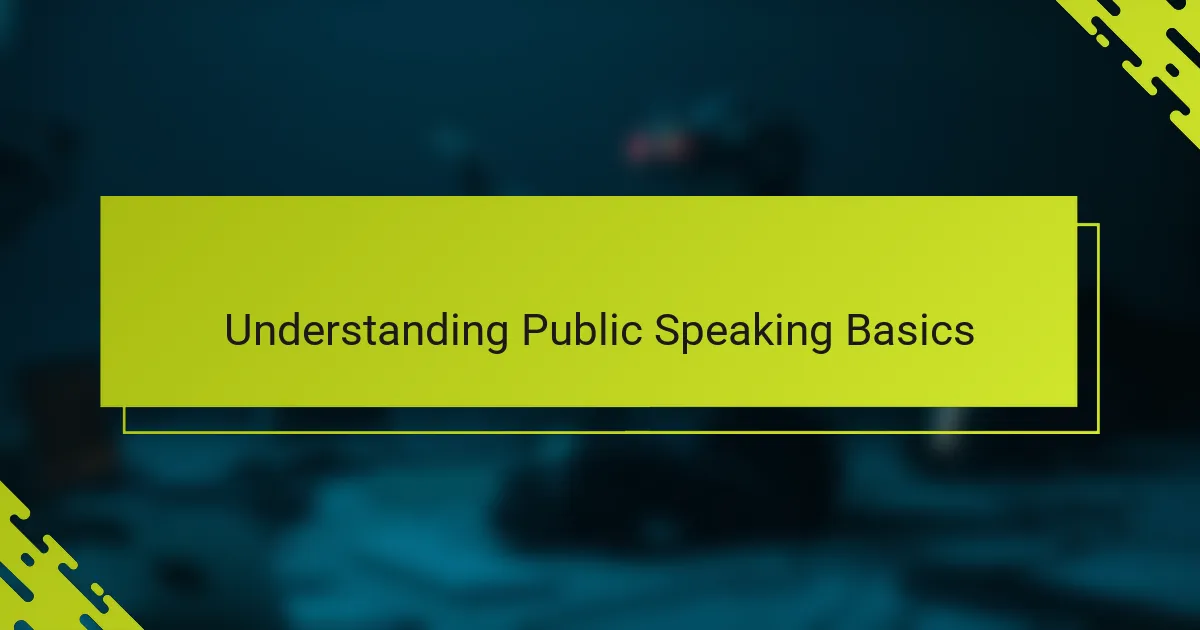
Understanding Public Speaking Basics
Public speaking, at its core, is about connection—sharing your thoughts in a way that resonates with others. I remember feeling overwhelmed at first, wondering how to keep an audience engaged. But understanding basics like clear structure and purposeful pauses transformed those nerves into confidence.
Have you ever noticed how powerful a simple story can be in capturing attention? That’s the heart of public speaking: storytelling with intention. Learning to organize ideas logically and use your voice effectively turned my speeches into conversations rather than rehearsed performances.
One thing that surprised me was how much body language influences a message. When I started paying attention to my posture and gestures, my words felt more authentic. It made me realize public speaking isn’t just about what you say—it’s about how you show up.
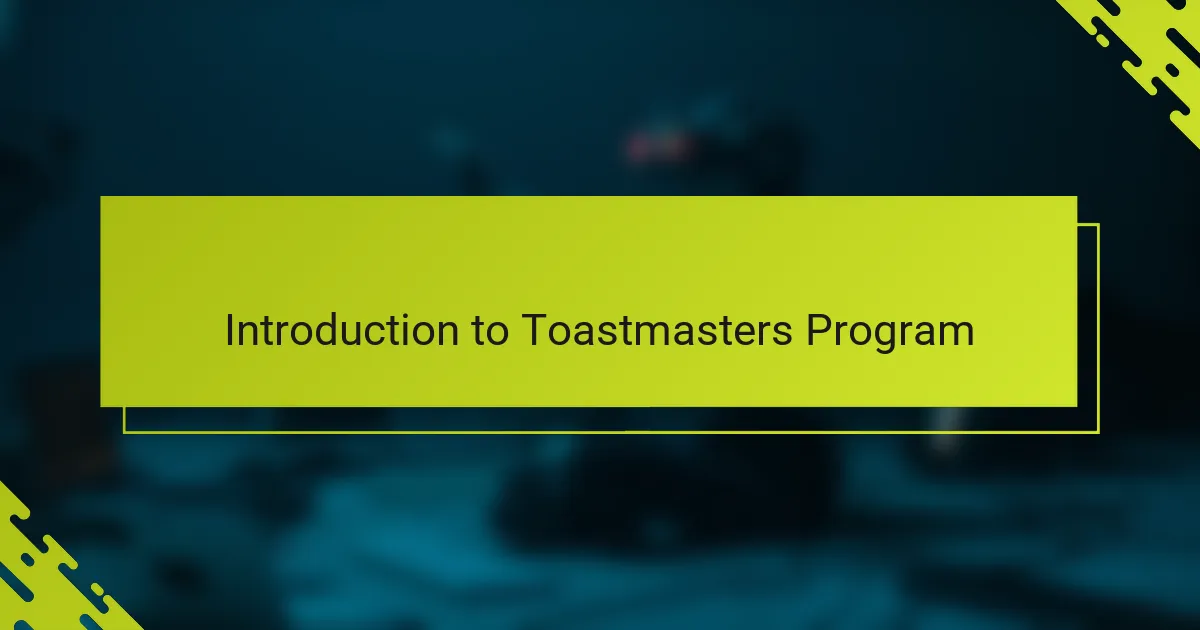
Introduction to Toastmasters Program
Toastmasters is a global program designed to help people become confident and skilled public speakers. When I first joined, I didn’t expect such a warm and supportive community—everyone was rooting for each other’s growth, which made stepping up to speak less intimidating. Have you ever thought about how having a structured environment can ease the fear of speaking in front of others?
One of the things I appreciate most about Toastmasters is its focus on practical experience paired with constructive feedback. Each meeting offers chances to practice speeches, take on different roles, and receive honest but encouraging input. This blend of doing and reflecting helped me improve much faster than I ever imagined.
What really stood out to me was how Toastmasters breaks down the process of public speaking into manageable steps. Instead of jumping into long speeches right away, you build confidence bit by bit—whether through short talks or focused skill exercises. It reminded me that growth happens gradually, and that patience with yourself is key.
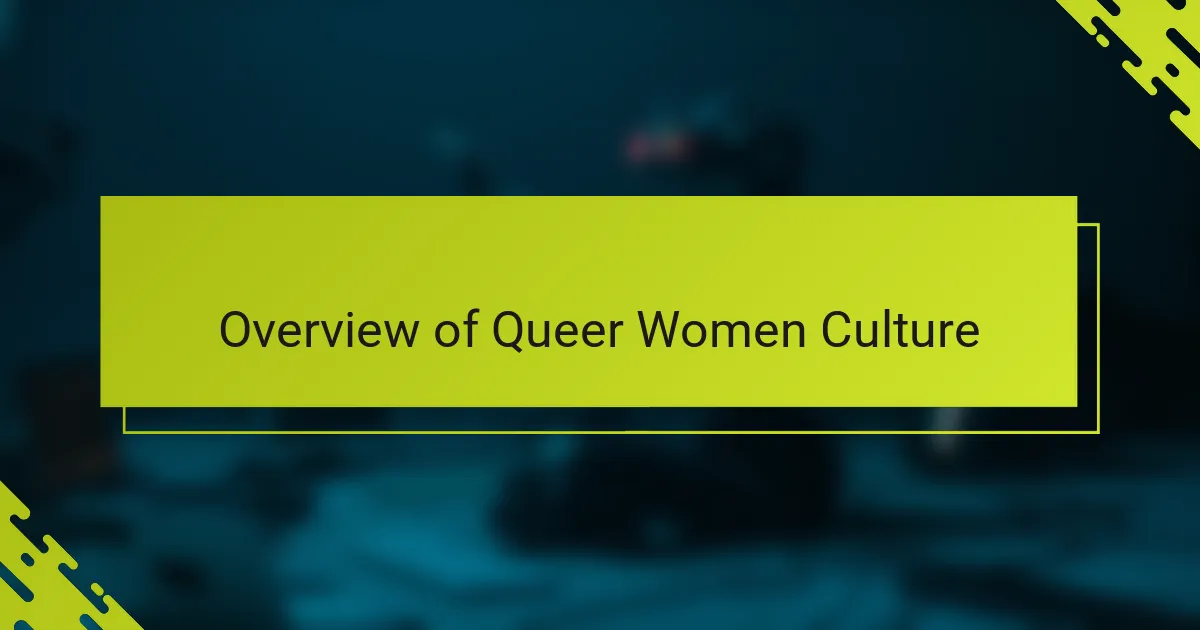
Overview of Queer Women Culture
Queer women culture is a vibrant tapestry of identities, experiences, and expressions that celebrate authenticity and resilience. It’s a space where personal stories blend with collective history, creating a sense of belonging that many of us crave. Have you ever felt how powerful it is to find a community that truly sees you for who you are?
What strikes me most about this culture is its emphasis on connection and creative expression—from art and activism to everyday moments of courage. It’s a culture that challenges norms while nurturing self-love and solidarity. Being part of it has taught me the importance of embracing complexity and holding space for diverse voices.
At its core, queer women culture is about reclaiming narratives and building supportive networks. I’ve found that these bonds not only inspire personal growth but also empower us to speak up—whether in public or within intimate circles. Isn’t that what community is really about?
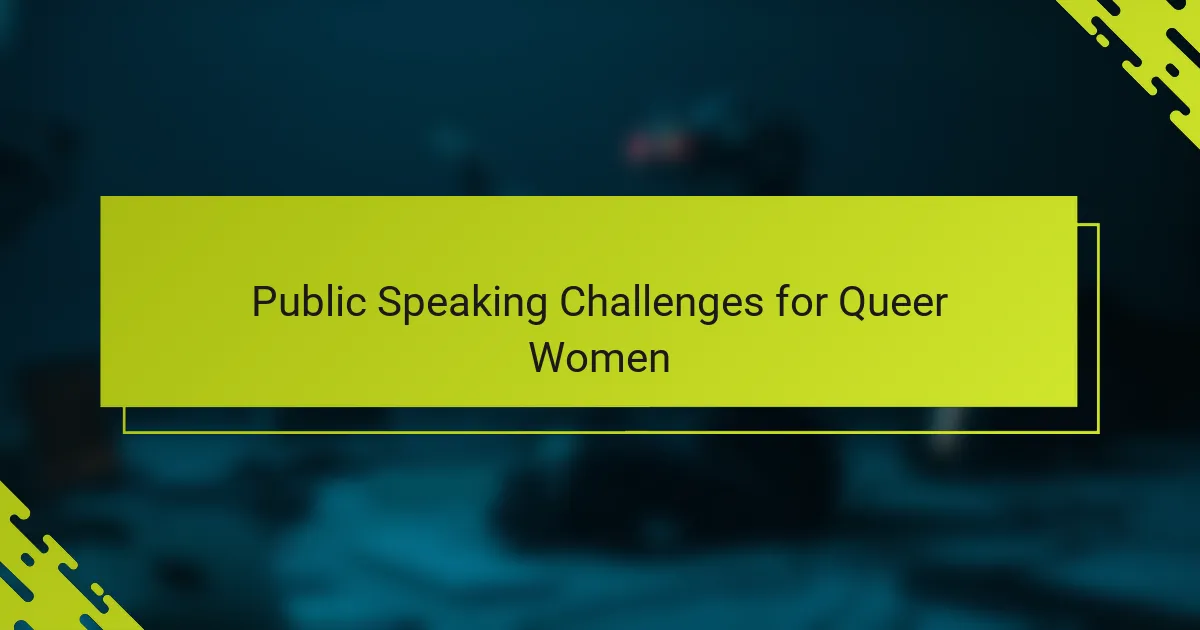
Public Speaking Challenges for Queer Women
Speaking publicly as a queer woman comes with its own unique set of challenges that I hadn’t fully anticipated. Sometimes, I’ve felt the weight of invisible expectations—wondering how much of my identity to reveal, or fearing judgment from an audience that might not fully understand my experience. Have you ever hesitated to share your full story because you weren’t sure it would be accepted?
There’s also the challenge of representation. For many queer women, public speaking isn’t just about delivering a message—it’s about being seen as authentic and legitimate in spaces where we’re often marginalized. I’ve noticed moments where I questioned if my voice carried enough weight or if it was overshadowed by dominant narratives. It’s a tense balancing act between vulnerability and strength.
On top of that, internalized fears tied to societal prejudices sometimes hold me back. I’ve asked myself, “Will people listen or dismiss me because of who I am?” Over time, being part of communities like Toastmasters helped me confront these doubts head-on. I realized that sharing my story not only empowers me but also challenges misconceptions—turning anxiety into a powerful tool for connection.
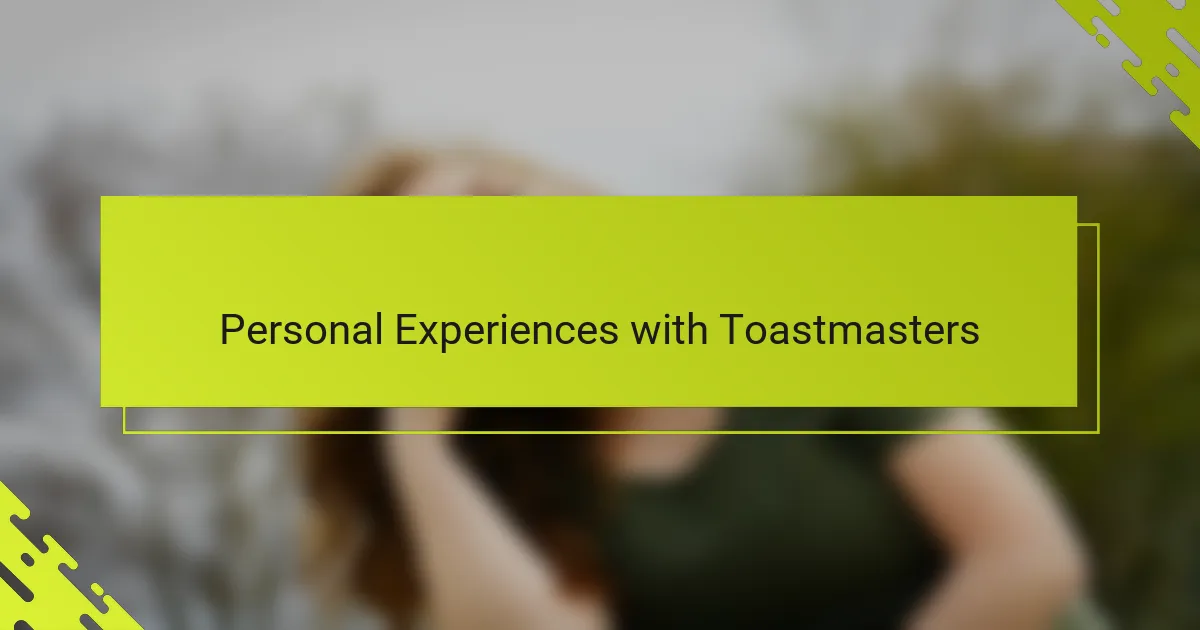
Personal Experiences with Toastmasters
Joining Toastmasters felt like stepping into a new world where every small victory mattered. I recall trembling before my first speech, but the supportive smiles and gentle encouragement from fellow members helped me push through that fear. Have you ever experienced that quiet boost of confidence simply from knowing people believe in you?
One moment that stands out was when I received my first evaluation. At first, I braced myself for criticism, but instead, I got thoughtful feedback that made me feel seen and motivated. It changed how I viewed growth—not as judgment, but as a chance to shine brighter.
What I appreciate most is how Toastmasters has given me space to explore my voice as a queer woman. Sharing pieces of my story in a safe environment helped me not just speak, but truly connect. Isn’t that what meaningful communication is really about?
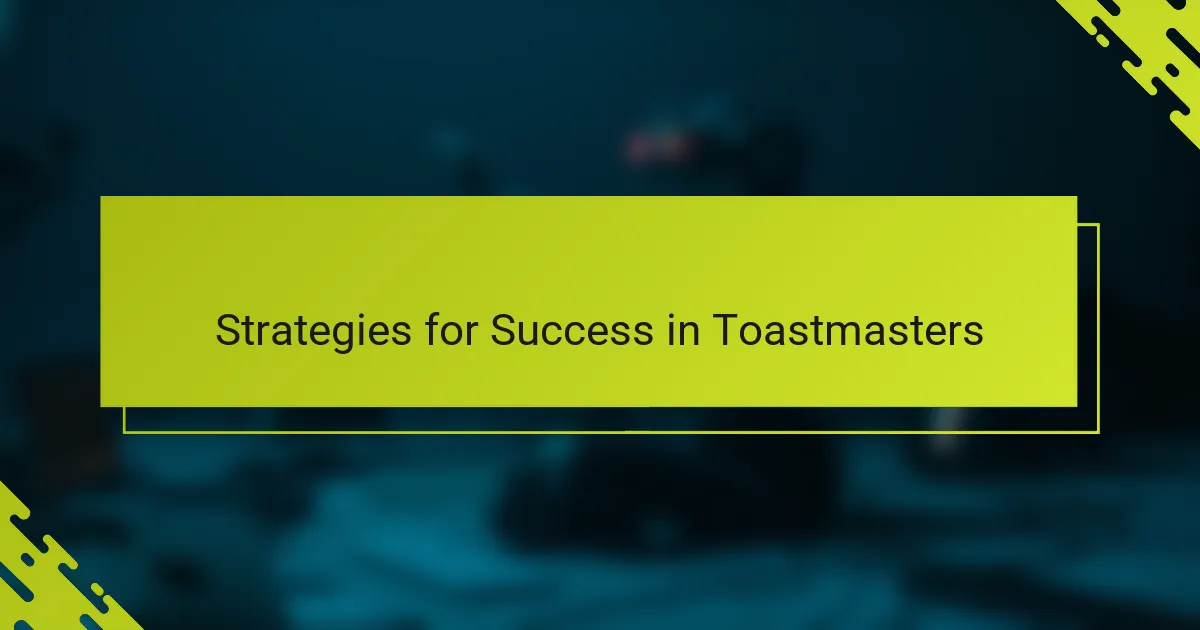
Strategies for Success in Toastmasters
One strategy I found invaluable in Toastmasters was setting small, achievable goals for each speech. Instead of aiming for perfection right away, I focused on mastering one skill at a time—like making eye contact or using pauses effectively. Have you ever noticed how breaking down a big challenge into tiny steps makes it feel much more doable? That approach kept me from feeling overwhelmed and allowed steady progress.
Another thing that helped me immensely was embracing every role during meetings, not just speaking. Whether I was timekeeper, evaluator, or even “ah-counter,” each position taught me something new about communication. Participating fully gave me a broader understanding of how speeches flow and how to support others’ growth, which in turn boosted my own confidence.
Lastly, I realized that vulnerability became my secret strength. When I shared honest stories, even with shaky nerves, the connection with my audience deepened. Toastmasters encouraged me to lean into that authenticity rather than hide behind rehearsed lines. Have you experienced how showing your true self can transform speaking from a performance into a shared experience? For me, that was a game changer.
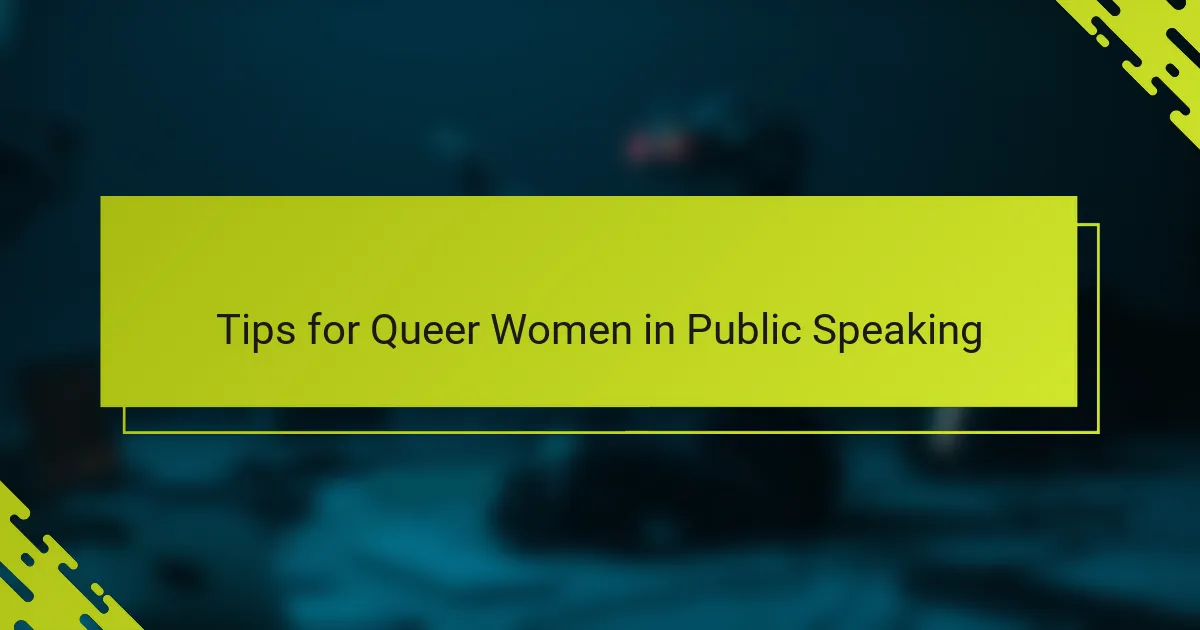
Tips for Queer Women in Public Speaking
One tip I can’t stress enough is owning your identity in your speaking. When I first hesitated to share parts of my queer experience, I worried about audience reactions. But leaning into my authentic self made my messages more powerful and relatable. Have you noticed how honesty draws listeners in more than polished scripts ever could?
Another thing that helped me was finding community within the speaking space. Toastmasters felt like a safe zone where my voice—as a queer woman—was not only heard but valued. Seeking out or creating such affirming environments can ease anxiety and foster true connection. Don’t you think it’s easier to speak up when you feel supported?
Lastly, I learned to reframe nerves as excitement, especially when discussing topics close to my heart. Rather than trying to hide vulnerability, I embraced it as a bridge to my audience. That shift changed my whole approach—speeches became conversations, not performances. Have you tried turning fear into energy? It’s surprisingly liberating.
